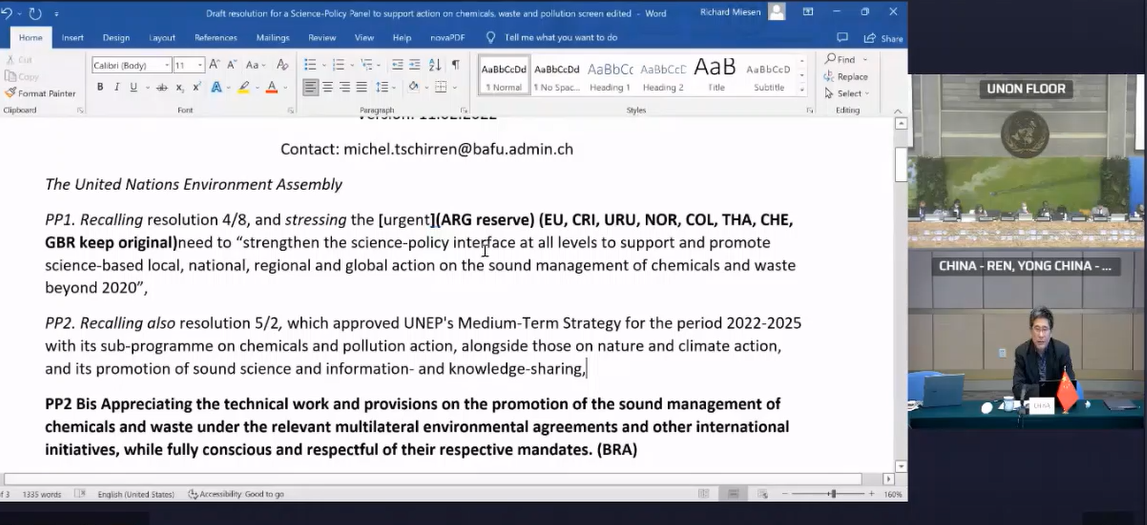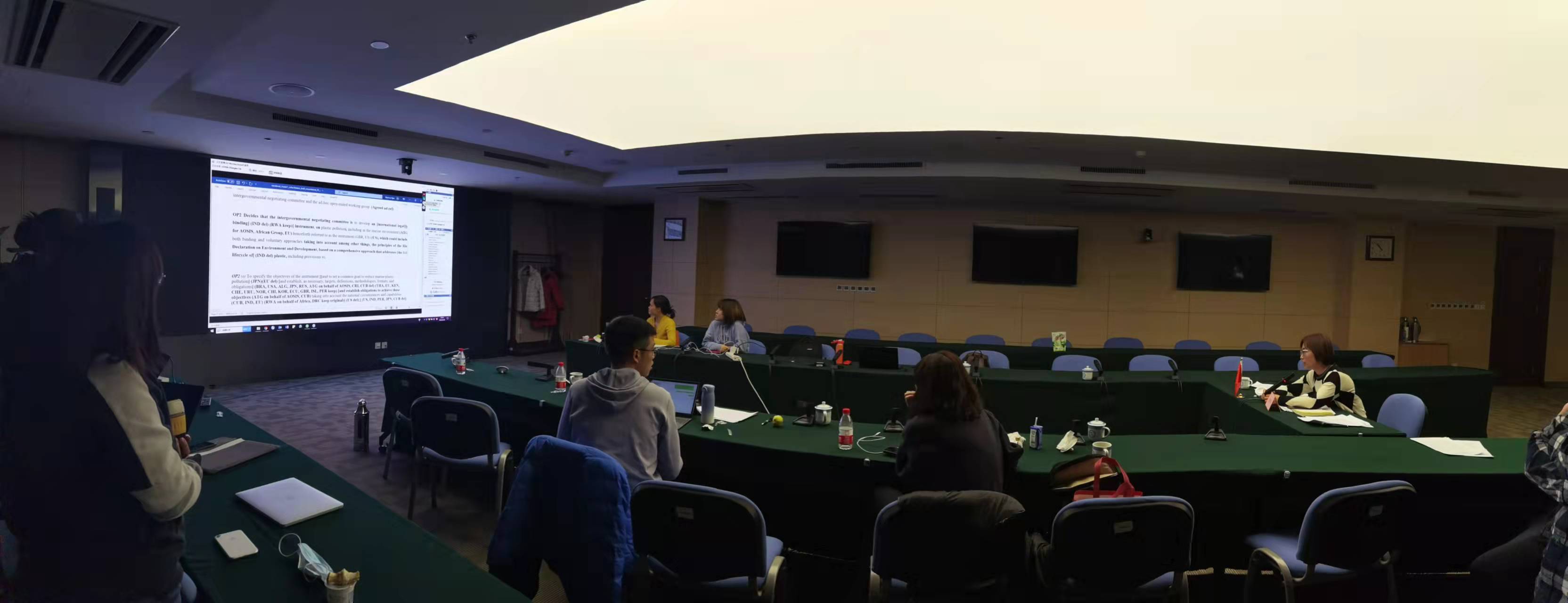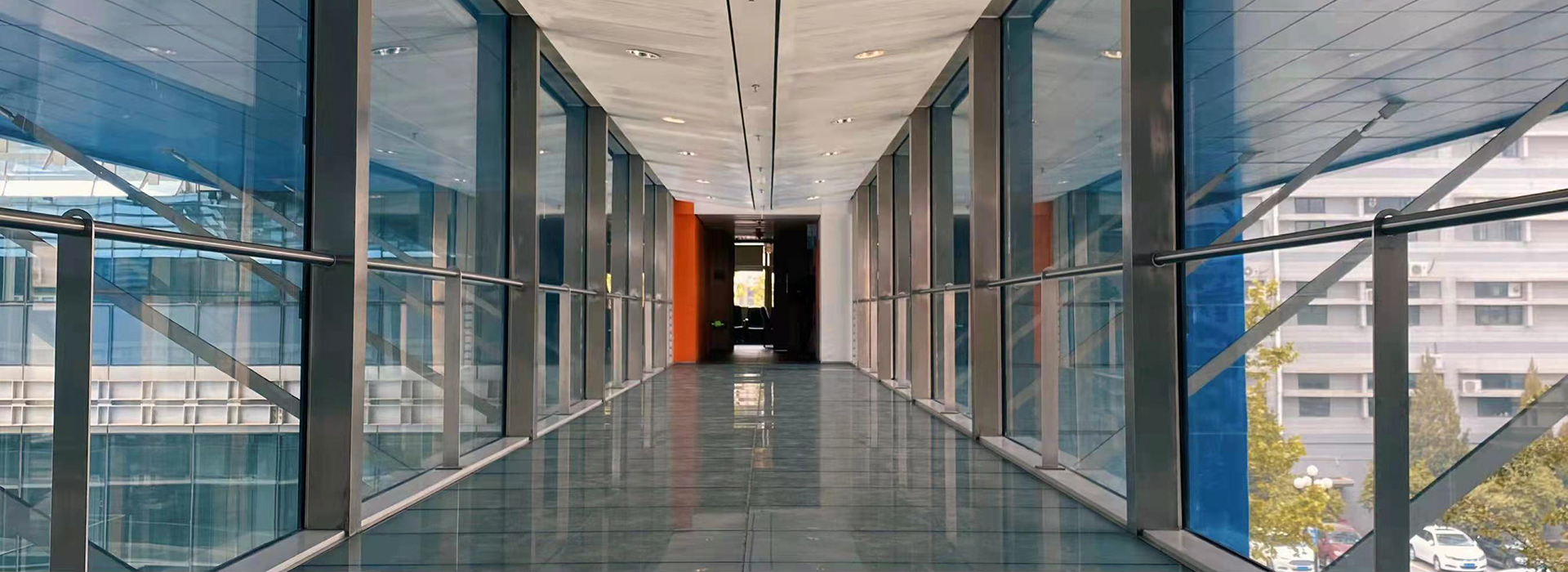The resumed fifth session of the United Nations Environment Assembly (UNEA-5.2) concluded on March 2, 2022. The conference was held online and offline. The on-site meeting was held at the headquarters of the United Nations Environment Programme (UNEP) in Nairobi, the capital of Kenya. Part of the faculty and students from the School of Environment (SOE) and several staff members from the Basel Convention Regional Centre for Asia and the Pacific and the Stockholm Convention Regional Centre for Capacity-building and the Transfer of Technology in Asia and the Pacific (BCRC China) participated in the conference online. Professor Li Jinhui and Assistant Researcher Tan Quanyin from SOE, and Associate Researcher Zhao Nana and Researcher Chen Yuan from BCRC China attended the meeting as members of the Chinese government delegation to provide technical support for the consultation on a number of topics such as the “legally binding international agreement on plastic pollution”, the “Expert Committee on chemicals, waste and pollution prevention”, and the “sound management of chemicals and waste”, which has made important contributions to the conclusion of relevant resolutions. Three research assistants and two undergraduate students from the SOE participated in the meeting as observers.
From February 21st to 25th, 2022, the Open-ended Committee of Permanent Representatives (OECPR) of UNEA-5.2 was held. Delegates of Member States negotiated on 17 draft resolutions and decisions.
The prevention and control of plastic pollution was a major focus of the conference, with three draft resolutions. One was proposed by Rwanda and Peru to address plastic pollution by covering the whole life cycle of plastics from production to waste management, aiming to forge a legally binding international agreement on plastic pollution. Japan’s draft aims to establish an intergovernmental negotiating committee to address marine plastic pollution. The draft proposed by India focuses on tackling pollution from plastic products including single-use plastics. After seven days of negotiations, the conference finally endorsed a historic resolution titled End plastic pollution: Towards an internationally legally binding instrument. Inger Andersen, Executive Director of the UNEP, said the agreement “marks a triumph by planet earth over single-use plastics”, and is the most significant environmental multilateral deal since the Paris accord, as well as an insurance policy for this generation and future ones.
Chemicals and waste management was another focus of the conference, with two draft resolutions. One was submitted by Switzerland to put in place an ambitious new instrument to promote and support the sound management of chemicals and waste beyond 2020. The draft submitted by Burkina Faso, Ghana and others proposed to establish an autonomous intergovernmental body to support national actions for the sound management of chemicals and waste by providing policy-relevant scientific advice on issues. After nine days of consultations, both drafts were adopted, and an ad-hoc open-ended expert group will be held in 2022 to discuss the specific issues of the establishment of an intergovernmental Science-Policy Panel.

Mr. Li Jinhui commented on the Draft resolution for a Science-Policy Panel to support action on chemicals, waste and pollution

Ms. Zhao Nana commented on the Draft resolution on an internationally legally binding instrument on plastic pollution
The UNEA-5.2 was successfully held from February 28 to March 2, with more than 3,400 delegates attending on-site and 1,500 online, including 175 delegates from UN Member States, 79 ministers and 17 senior officials. The overall theme for UNEA-5 was “Strengthening Actions for Nature to Achieve the Sustainable Development Goals,” highlighting the pivotal role nature plays in our lives and in social, economic and environmental sustainable development. The conference adopted 14 resolutions and one decision on topics such as plastic pollution control, sound management of chemicals and waste, enhancing circular economy, and sustainable lake management.
The UNEA is the highest decision-making mechanism on global environmental issues. It convenes every two years to set global environmental policy priorities and formulate international environmental law. Decisions and resolutions approved by Member States of the UNEA form the basis of the work plan of UNEP. In light of the restrictions related to the COVID-19 pandemic, Member States decided that the UNEA-5 should take place in a two-step approach. The first session of UNEA-5 (UNEA-5.1) was held online on from 22 to 23 February 2021, where non-substantive issues such as the work plan and budget of UNEP were discussed. The second session of UNEA-5 (UNEA-5.2) was held online and offline to agree on policies to address the world’s most pressing environmental challenges and promote concerted efforts for immediate action at the global level.





